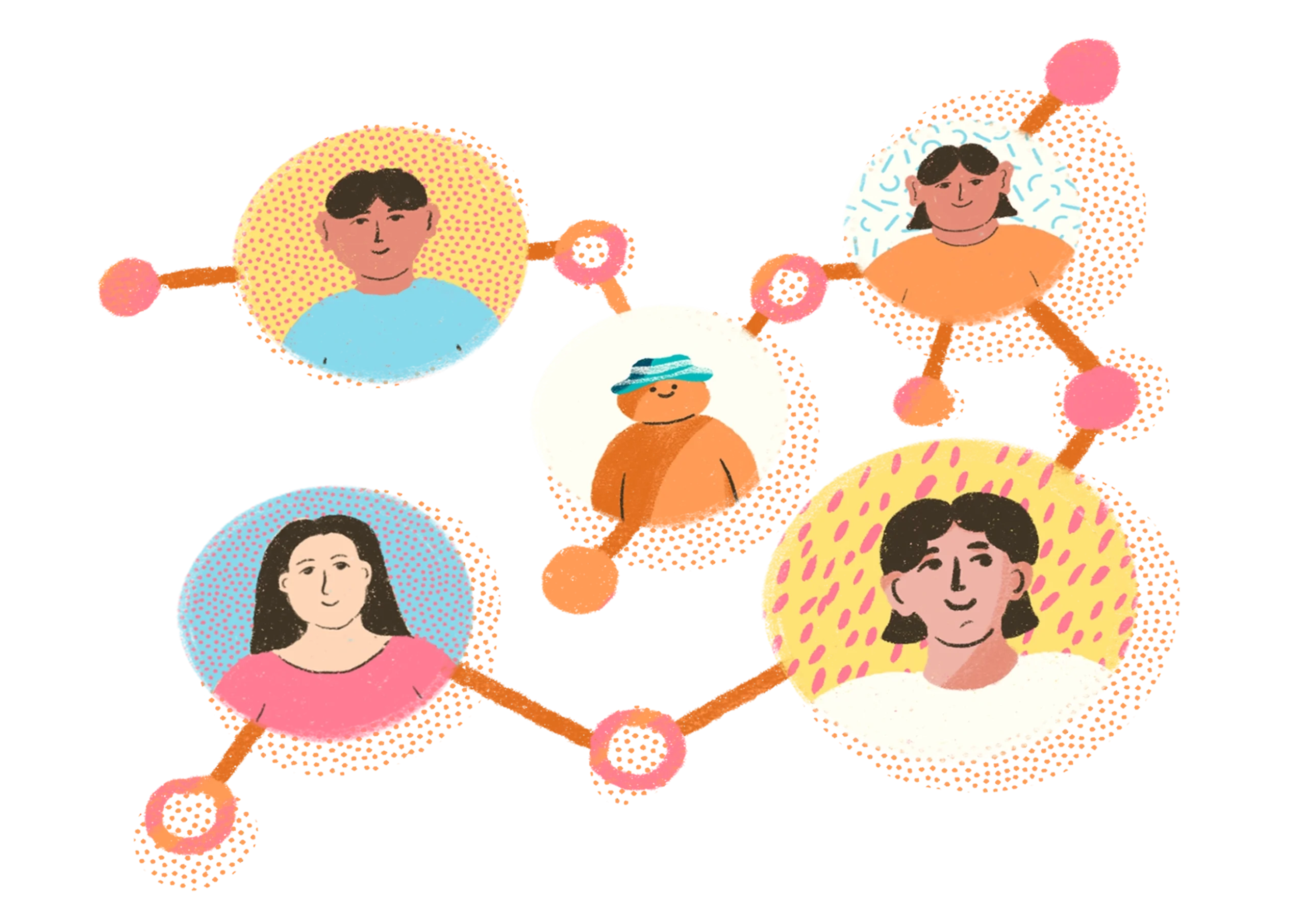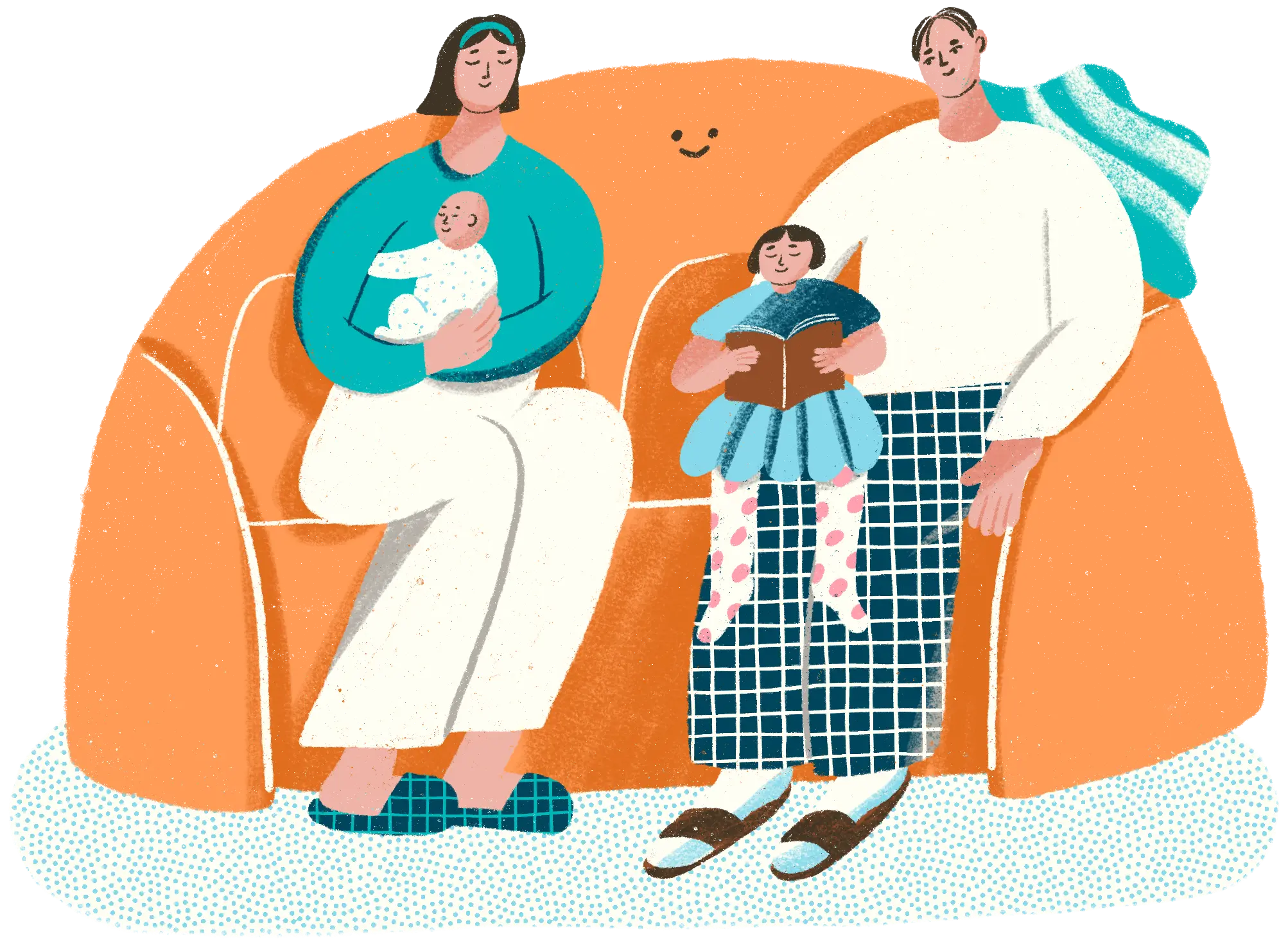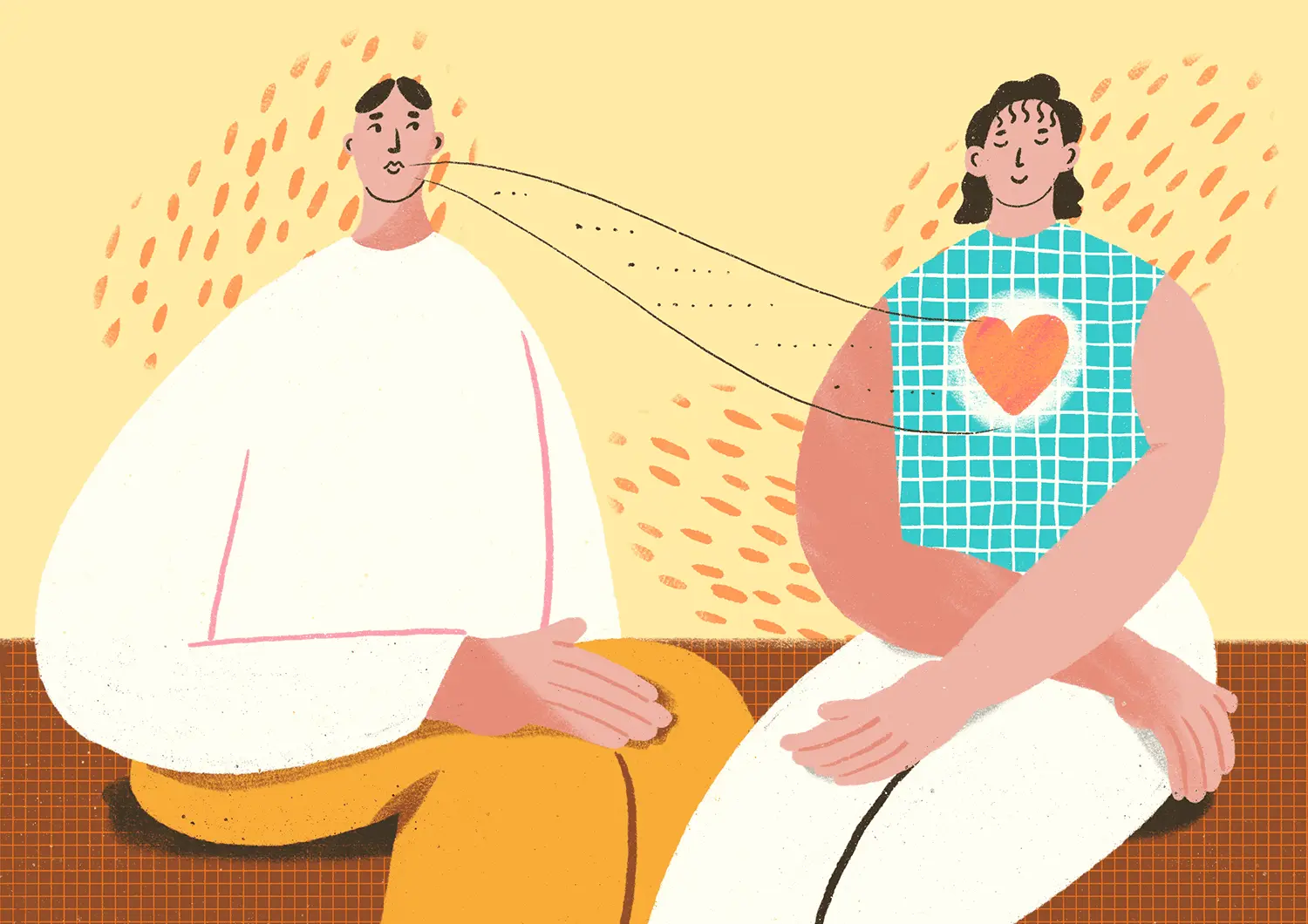
Every stage of life adds a new layer, much like the rings of a tree, capturing our transformations and crafting our unique journeys. At the heart of these rings lies our family of origin, whose environment, interactions, and parenting styles deeply shape who we become. As we grow, the impact of our upbringing reveals itself in our personalities, values, and behavior patterns, telling the story of our growth and experiences.
What is Family of Origin?
The term "Family of Origin" refers to the family environment in which a person grows up. This can include biological parents, grandparents, relatives, or adoptive families. The family that nurtures you during your formative years is considered your family of origin.
Experiences within the family of origin unconsciously shape our beliefs, values, and sense of identity. It serves as our first educational environment, teaching us about love, conflict, and criticism. This foundational experience informs how we understand ourselves, interact with others, and what we expect from relationships.

Family of Origin and Self-Esteem
Scholar Murray Bowen, the mind behind "Family Systems Theory", highlights that positive interactions in our family of origin empower us to respond more attuned to our partners' needs as adults. In contrast, those raised in families marked by ineffective communication, like emotional neglect, often carry the weight of heightened emotional reactions and anxiety into their relationships.
Research tracking 273 young people aged 16 to 26 indicates that adolescents with strong emotional connections to their parents tend to have higher self-esteem at the time, as well as 17 and 20 years later. This underscores the profound and lasting influence of our family of origin on the development of self-esteem.
Self-esteem largely depends on external factors, such as evaluations from others, peer comparison, appearance, achievements, and abilities. In contrast, self-worth is a deeper, intrinsic recognition of one's value as a person, the belief that one is deserving of love, respect, and worthiness. A positive sense of self-worth often accompanies high levels of self-acceptance and self-esteem.
In childhood, we are like blank slates, and our sense of self-worth is closely tied to how adults treat us, the tone they use when speaking to us, and their attitudes towards us. The family of origin shapes our early understanding of whether we are important, valuable, and deserving of love and kindness.

In the book The Origins of You: How Breaking Family Patterns Can Liberate the Way We Live and Love, common traits of caregivers that diminish a child's self-worth are described. These include emotional unavailability, conditional love, and excessive criticism. We will provide examples to illustrate each of these traits.
Emotional Unavailability:

" At regular gatherings with friends and family,
the father was always talkative and welcoming,
eagerly sharing the latest news about his family.
However, once they returned home, he would fall silent and wear a blank expression.
When the daughter shared funny stories from the gathering,
he showed no interest at all.
He would quickly tidy up and head straight to his room to sleep.
The daughter couldn’t understand her father’s true feelings and felt confused,
believing that she annoyed him. "
Research indicates that emotional availability is foundational for caregivers to establish healthy relationships with children. It helps children feel seen, creates emotional safety, and promotes learning and personal growth. Indicators of a caregiver's emotional availability include:
- Sensitivity: Accurately reading a child's signals and creating emotional connections through actions and expressions
- Structuring: Supporting and guiding children in deeper exploration, providing appropriate direction and assistance
- Non-intrusiveness: Respecting a child's autonomy and personal space, allowing them to engage in independent learning
- Non-hostility: Regulating negative emotions (including subtle feelings like impatience, frustration, and boredom) without expressing them toward the child
In contrast, emotional unavailability may manifest as low sensitivity to a child's emotional needs, indifference, impatience, or feelings of being overwhelmed. Caregivers might avoid sharing their own emotions or discussing their child's emotions, show disinterest in the child's life (such as their interests, friendships, or school experiences), and struggle to comfort them during emotional distress. When caregivers consistently neglect a child's emotional needs, the child may begin to doubt their worth, question their value, and feel inadequate.
It's noteworthy that emotional unavailability is relatively common in many traditional Asian families. Asian parents often express love through actions, such as preparing a hearty meal, arranging extracurricular activities, or finding a good school, rather than through direct emotional communication or verbal expressions.
Conditional Love:

“ On parent-teacher day, the mother would express her praise and support for her son,
but only if he achieved good grades.
When his performance didn’t meet expectations, she would say,
'If you worked harder, you could be a better child.' ”
Many people learn as they grow up that they must fit a certain image to receive emotional connection or companionship. For instance, if a child behaves rebelliously or faces challenges in their studies, caregivers may respond with indifference as a form of discipline, leading the child to believe that making mistakes or disappointing others means they are unworthy of love and value. Research shows that when parents express conditional love based on academic achievements, such as only showing affection when grades are high, can result in lower sense of security and self-esteem in children. This often leads to decreased self-kindness, increased self-judgment, and lower life satisfaction.
In contrast, unconditional love differentiates the child from their behavior, allowing them to understand that even when they make mistakes or disappoint others, it does not diminish their worthiness of love and value. Unconditional love does not mean avoiding consequences. For example, if a child misbehaves, a father might say, "I don’t like this behavior; you can’t go out with your friends this weekend. I still love you and am here to talk, but you need to face the consequences of your actions." This approach emphasizes that children do not need to meet specific conditions to have emotional connection, companionship, and care.
Excessive Criticism:

“ The granddaughter shared her dreams of becoming a professional photographer with her grandmother.
However, the grandmother mocked her, saying,
‘Being a photographer won't pay the bills.
Your idea is unrealistic and silly.
One day, you'll understand what I mean.’ ”
Words can inflict profound wounds on a child's sense of self-worth. Criticism, comparison, denial, belittlement, verbal abuse, and humiliation - whether intentional or not, can leave lasting scars and lead to persistent negative thinking. If children internalize and believe these hurtful words, their self-image and self-worth will be affected, making them question whether they deserve love and respect, and fostering an inner voice of self-criticism.
The way caregivers communicate and the words they choose often reflect who they are: their cultural background, education, definitions of success and happiness, personal values and aspirations, as well as projections of their own insecurities and fears. Hurtful language can distort a child's perception of their abilities and worth, leading them to adopt a critical view of themselves over time. Excessive self-criticism can stifle a child's creativity and confidence, causing them to feel fearful when expressing themselves.

Of course, self-worth is influenced by various factors, including environment, social support, personal experiences, and genetics. It’s important to note that our parents or caregivers each have their own family of origin story. They may carry unresolved traumas from their own upbringing, having experienced neglect, denial, or violence, and may not know how to regulate or express their emotions, and as a result, they might unconsciously carry their experiences and patterns from their family of origin into the families they create, reenacting similar behaviors without realizing it.
Please understand that they may have done their best within their capabilities and understanding. As we grow and begin to write our own stories, recognizing the experiences from our family of origin and maintaining self-awareness can help us avoid letting the past shape our present. This awareness allows us to gently move beyond the influences of our upbringing. Focusing on our family of origin is not about blaming anyone or making excuses, but rather about guiding us toward healing.
Our family of origin resembles the rings of a tree, marking the many traces of our growth and reminding us of the richness and depth of life. Its influence is significant, yet we have the power to transform and grow through our own efforts. Just as a tree can adapt its growth through changes in its environment and care, we can use self-awareness and healing to mend the effects of our upbringing, allowing us to live as our authentic and beautiful selves.
References:
Brueckmann, M., Teuber, Z., Hollmann, J., & Wild, E. (2023). What if parental love is conditional …? Children's self-esteem profiles and their relationship with parental conditional regard and self-kindness. BMC psychology, 11(1), 322. https://doi.org/10.1186/s40359-023-01380-3
Krauss, S., Orth, U., & Robins, R. W. (2020). Family environment and self-esteem development: A longitudinal study from age 10 to 16. Journal of personality and social psychology, 119(2), 457–478. https://doi.org/10.1037/pspp0000263
DeCore, A. K., & Focht, K. (2019). Family of origin. In J. L. Lebow, A. L. Chambers, & D. C. Breunlin (Eds.), Encyclopedia of Couple and Family Therapy (pp. 1087–1090). Springer. https://doi.org/10.1007/978-3-319-49425-8_349
Saunders, H., Kraus, A., Barone, L., & Biringen, Z. (2015). Emotional availability: theory, research, and intervention. Frontiers in psychology, 6, 1069. https://doi.org/10.3389/fpsyg.2015.01069
Robert E. L. Roberts, & Bengtson, V. L. (1996). Affective Ties to Parents in Early Adulthood and Self-Esteem Across 20 Years. Social Psychology Quarterly, 59(1), 96–106. https://doi.org/10.2307/2787121
Marty Nemko. (2021). How Has Your Family of Origin Affected You? Retrieved at https://www.psychologytoday.com/us/blog/how-to-do-life/202108/how-has-your-family-of-origin-affected-you
Pharaon, V. (2023). The origins of you: How breaking family patterns can liberate the way we live and love. Penguin Publishing Group.



